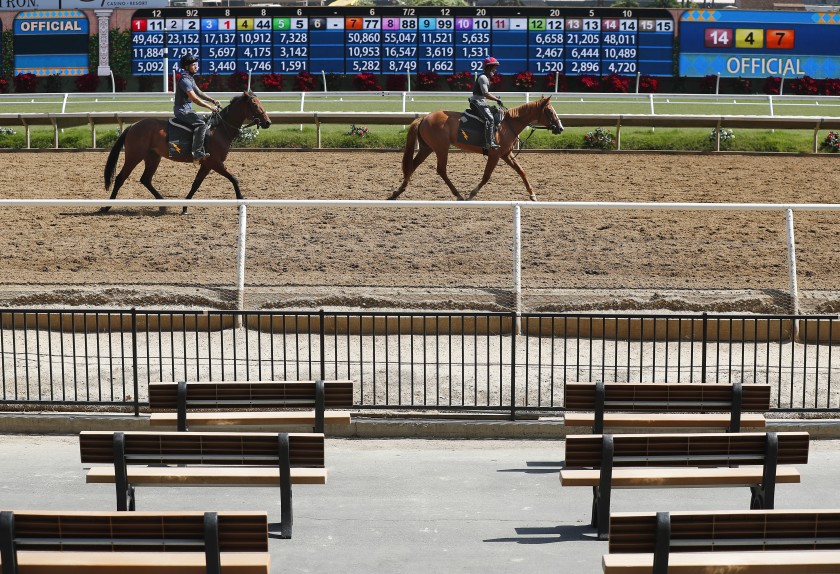I’ve been incredibly fortunate to spend much of my life around horses and the people who care for them. These are magnificent animals with willing hearts and spirits. They’re extraordinary athletes. The people who care for them share one common bond — their devotion to their horses. They are some of the most decent, dedicated, hardworking people I have ever encountered.
Over the past few years, the Del Mar Thoroughbred Club has made a cultural commitment to enhancing equine safety at our facility and the results speak for themselves. While there is always more work to be done, we are proud that Del Mar has been recognized as the safest major racetrack in the United States for the past two years running based on our voluntary reporting to The Jockey Club’s national Equine Injury Database.
Del Mar has emerged as a leader nationally for horse safety and welfare and our team has worked with our legislators and regulators to create meaningful reforms. Del Mar is also a founding member of the Thoroughbred Safety Coalition, an association of major U.S. racing organizations committed to positive safety reforms and accountability across all national racing jurisdictions.
But now, like so many others, Del Mar is faced with a new challenge — the coronavirus pandemic. And, similar to how we have led the way on equine safety and welfare, we must now be sure that we keep the people who care for the horses and our neighbors as safe as possible.
I believe we are up to that challenge. We have spent the past four months working with other horse racing leaders, medical experts and the San Diego County Health and Human Services Agency to create and implement best practices in health protocols for the people who live and work at Del Mar. That starts with an unprecedented first in the 81-year history of our venue — racing without fans in our grandstand.
Backed by county and state health and medical experts, we have put together a large-scale safety program that will ensure those onsite at the 340-acre Del Mar Fairgrounds & Racetrack will have the most secure working environment possible.
Access to the barn area will be restricted to individuals who work directly with the horses and who are licensed by the California Horse Racing Board. Only essential personnel will be admitted to the facility and those people will be subject to daily health screenings and temperature checks. All personnel will be required to wear face coverings and some, such as jockeys and the starting gate crew, will be required to wear additional personal protective equipment. Enhanced cleaning and sanitation procedures will be in effect throughout the facility with added hand washing and sanitizing stations. Medical personnel will be on-site. The coronavirus testing protocols are in place, and, in the event of a positive test, we have secured off-site quarantine facilities at our own expense.
We have asked our county and state officials to review and comment on our plans and across the board we’ve gotten thumbs up. We have invested more than $250,000 in our coronavirus response procedures. Our 1,800 racehorses and the approximately 1,000 workers (grooms, hot walkers, exercise riders, assistant trainers) who live with and care for them daily are in surroundings that are monitored 24 hours a day by a caring and knowledgeable staff. We believe their conditions are the safest possible environment. That’s the Del Mar way.
The Del Mar Thoroughbred Club, which has overseen racing at Del Mar since 1970, is essentially a not-for-profit company and all of its net revenues support the care of horses and the community asset that is the Del Mar Fairgrounds & Racetrack. Horse racing at Del Mar is responsible for thousands of seasonal jobs each summer and fall and provides $300 million of annual economic impact to the region. We are proud of our commitments to equine research, notably through the renowned veterinarian school at UC Davis and its Kenneth Maddy Equine Laboratory.
We don’t know what the rest of 2020 will bring for us, our community or our state in this demanding time. We do know, though, that at Del Mar we’ll continue to work hard and keep our focus on our primary goal — the safety of our horses, our people and our neighbors. That is at the beating heart that gives Del Mar its life.
Harper is Del Mar Thoroughbred Club’s CEO and has been a Del Mar executive since 1977. He lives in Del Mar.

